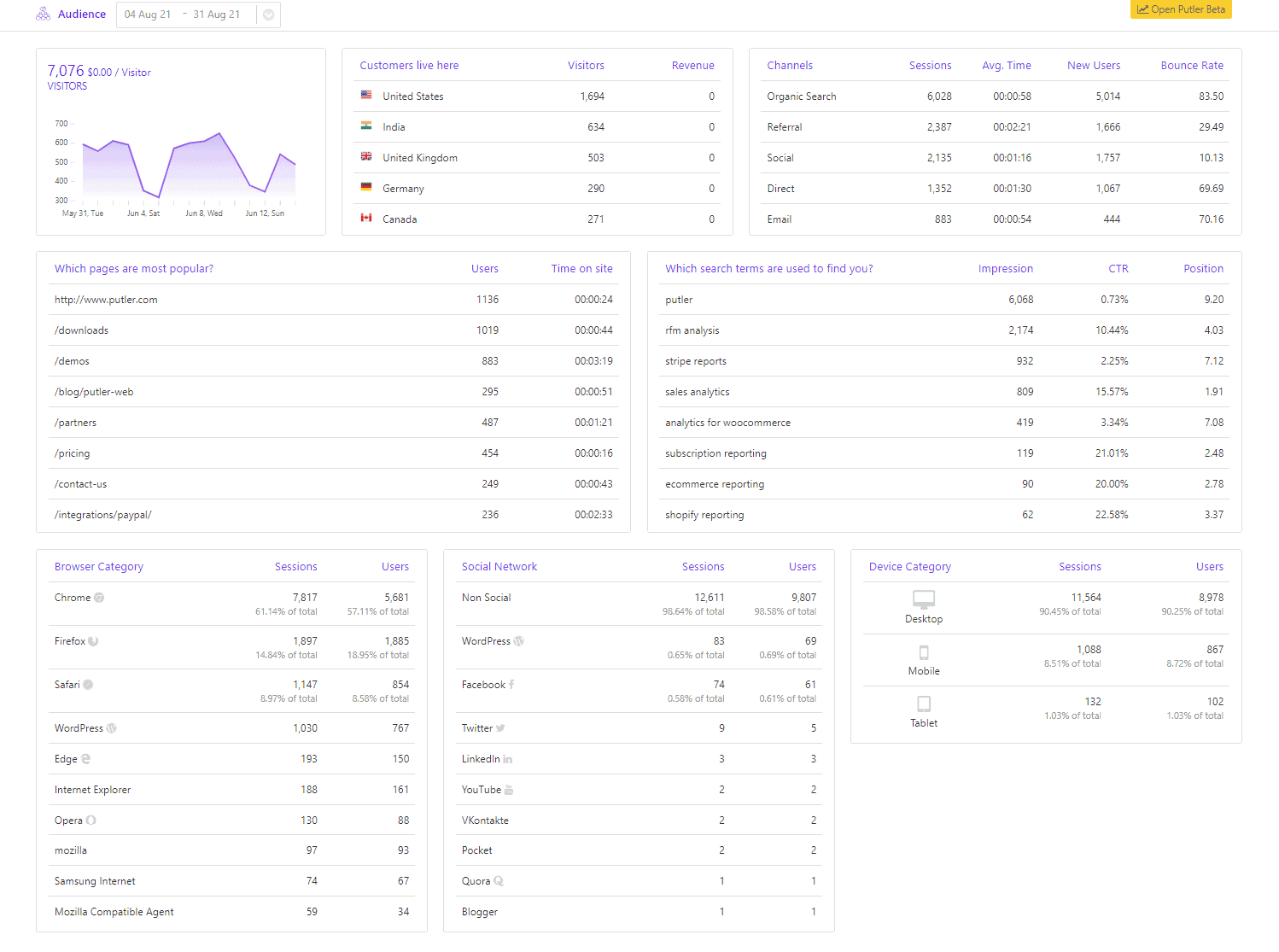Google Analytics is a name that every website owner is well aware of. This single tool has the power to provide detailed insights into the website and allow website owners to improve the website performance.
While using Google Analytics is a breeze with a single website, handling multiple Google Analytics for multiple websites is going to give you jitters.
In this post, we’ll explore the importance of Google Analytics, problems that one might face during handling multiple Google Analytics accounts, its disadvantages, and viable solutions.
Benefits and Importance of Google Analytics For Your Website
- You don’t have to spend a single penny for analysis with GA. It’s free to use.
- Know your website’s bounce rate.
- Wondering what kind of content will work in your case? Let GA’s keywords analysis help you out. It uses trends and your audience’s interest to find out which type of content you should pen down.
- Know what the visitors are looking for and understand your customers better.
- Google Analytics collects the data and does everything automatically – with the least possible human interference.
- Other than website monitoring & analysis, it allows you to export data into a document, easy reports accessibility, and send data to email.
- Google Analytics filtering can help you do effective and result-driven social media marketing by telling you which platform generates the most traffic for you.
The Problem with GA
Seeing such a high number of benefits, website owners hardly think of any other tool. It’s shocking to know that nearly 50% of Google Analytics users are managing 10+ websites in Google Analytics. Though it seems a good thing from the surface, it’s the key reason for Google Analytics’ troubles.
For multiple websites, one has to set up multiple Google Analytics Account. This is when issues start. Using Google analytics multiple trackers isn’t at all easy for websites owners, after all.
The Disadvantage of Setting-up Multiple Google Analytics Account
- Juggling between too many Google Analytics platforms demands a well-defined framework to make sure errors are not there.
- It takes a lot to maintain a balance between all these accounts and assess data in a productive way
- With multiple Google Analytics accounts set up, one won’t be able to figure out how many people from one microsite are visiting the main website. Missing such crucial metrics has a huge negative impact on real-time website analysis.
- You cannot consolidate data from multiple GA accounts in one place.
How to add multiple GA properties under one account?
Well, if you’re wondering how to deal with the multiple Google Analytics account set-up problems then we have a list of possible solutions:
- Try adding all sites under one Google Analytics account. Google allows you to add 50 properties to one account.
- Create various views for each property
- Add every website as a unique account
- Set-up rolling reporting
- Add the tracking codes in Google Tag Manager
- A custom dashboard will provide all the data in one place
- Cross-domain tracking
- Block known bots automatically
All the above solutions can make multiple Google Analytics account setup and management a bit easier. But, to implement all these solutions, one has to have a great hold over Google Analytics and its operational tricks. A beginner won’t be able to bring these solutions to service.
Also, even with the above solution, one needs to switch between various properties to view data from each property individually.
So, what’s the way out?
How can you add another website to google analytics & track all GA data without worries? Or Can you consolidate data from multiple GA properties in one dashboard?
Well, we have something interesting for Google Analytics novices. They can have achieved perfection and high-end utility in Google Analytics multiple accounts with Putler. It’s a platform simplifying multiple-channel analytics in every way.

Steps to Consolidate Data From All your GA Accounts in a Single Place with Putler
While you’re using this tool, multiple Google Analytics accounts integration is super-easy.
- Login to your Putler account, or sign up if you don’t have an account.
- In Profile, navigate to Settings > Data sources > Add new data source
- Select Google Analytics
- Click Continue.
- Enter credentials of your Google Analytics account to authenticate Putler.
- View your Google Analytics reports instantly in your Putler Audience dashboard. Putler will consolidate data from all your multiple GA properties and show it in this dashboard
- If you wish to view data from each Google Account individually, follow these steps
Whether you own an e-commerce website or a regular website, Putler will help you have an in-depth overview of Google Analytics data in a centralized dashboard.
The Final Say
Google Analytics is a boon for website analysis, provided you have learned the art of managing multiple Google Analytics accounts. Putler is a great way to handle your hassles in this regard. Try it once without any qualms as there is a 14-days free trial. It’s worth a try.
- Bring All Important Google Analytics Data to One Place
- Google Web Analytics Made Simpler
